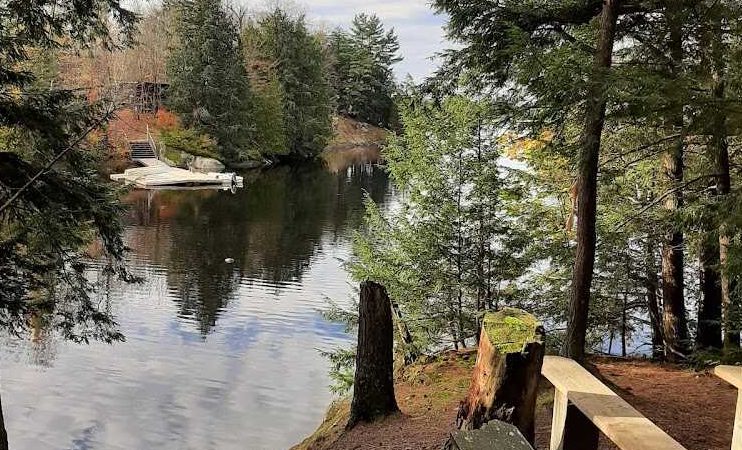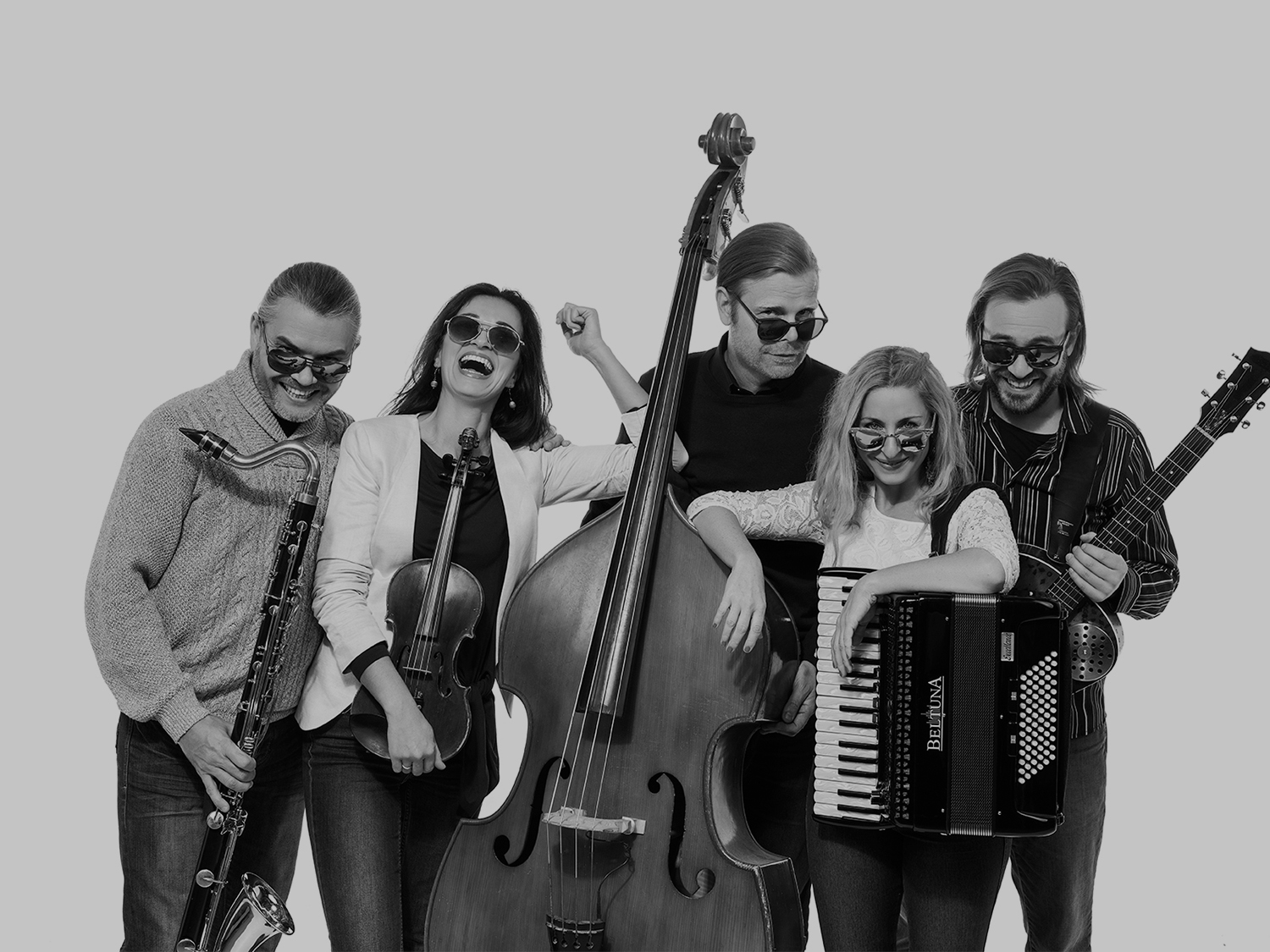I’m a very nostalgic person by nature.
Every Shabbat, throughout my childhood, my siblings and I would look through photo albums—which included the pictures we took ourselves (with disposable cameras, remember those?) from our time at sleepaway camp.
I’ve heard many friends describe how camp helped them uncover their connection to being Jewish. It was the ideal environment for independent exploration while learning practice and ritual, surrounded by others doing the same.
I spent 10 years at Camp Massad in the Laurentians, from entry level (what we call Geza Aleph, which starts in Grade 3) to a year on staff.
In other words, of all the summers I’ve ever experienced, one-third of them were as a camper.
The magic returned to me in the form of a close friend’s wedding two weekends ago. It took place at the Reform Judaism-affiliated Camp George, which is located a couple hours north of Toronto, in Parry Sound, Ont.
Driving up, what came back was the sensation of being on the bus that took me up every year as a child—travelling to a summer of fun without parents imposing their rules.
But this version of camp meant having lots of family around. And it was wonderful!
When I walked into my assigned cabin (Camp George winterized them all, not to worry) and dropped my travel bag on the lower half of a bunk bed, I felt like the shamelessly overgrown camper that I am: the 28-year-old who loved it so much that she longed to come back.
As night fell, we lit candles and had Friday night dinner in the chadar ochel (dining hall). I half-expected everyone to start banging on the table and singing camp cheers.
After a peaceful night’s sleep I walked down to the waterfront. Looking out at the lake, I took a deep breath in and closed my eyes.
In Vancouver, I was spoiled by the accessibility of natural beauty. You walk out the door and are immediately struck by snow-capped mountains and sparkling blue water every day.
(We’ve already determined that there are many opportunities to experience nature in Toronto. Still, it’s not the same as having an ocean in your backyard.)
There’s something very unique about experiencing Judaism in the wilderness, overall. We, as Jews, have become city dwellers, as a product of being in the Diaspora.
But one can argue that Judaism was originally an Earth-based practice. Abraham lived in a tent. And while I don’t have any data to back this up, I’d imagine when the Havdalah service was instituted to end Shabbat, the concept was to do it under the stars. (That’s the way we did it at Camp Massad.)
At the wedding, we did Havdalah in the aforementioned chadar and then went outside for a bonfire. Guitars came out and we all sang campfire songs together—before it started to rain and we moved to a covered pavilion as the rain gently came down.
On Sunday, my friend and her soulmate were married under a chuppah by the lake. It was stunning. I definitely teared up a few times.
As we said our goodbyes, after a l’chaim and a hora or two, I felt the same tinge of sadness I used to experience when camp was over.
Even though I only knew a handful of people upon arrival, I felt like I was part of an extended family after just a weekend.
And now, my friend’s wedding has found its own pages in that album of fond camp memories.
(I may have slightly failed on that accord, as my phone was off all weekend, camp style—the photo above was taken by someone else.)
Now, who’s with me to turn Jewish sleepaway camp into an all-ages experience? I think it’s something we can all benefit from.
The art worth watching this week
I’ve been getting into klezmer and Jewish-inspired music ever since my grandmothers passed away. It’s been a way to connect with my roots.
(As a result, I’ve been encouraged to check out KlezKanada. It’s on the list!)
For those who share my appreciation, and live close enough to catch it, the I Musici de Montréal chamber orchestra is opening its season by playing to these tastes.
Kleztory, an eight-piece klezmer band incorporating classical, jazz, blues, and folk styles, will perform alongside Montreal-based circus artist Mathilde K. Richer.
Honestly, there is nothing that makes me feel more Ashkenazi than a good klezmer tune—except maybe gefilte fish.
Performances are on Thursday, Nov. 4 at 2 p.m. and 7:30 p.m. For more info and to purchase tickets click here.
What we’re saying on Bonjour Chai
The search for a new host is finally over. I’m very pleased to welcome a fresh voice at our third microphone: an old friend and colleague of mine, David Sklar.
We first met in 2014 through Montreal’s theatre community. But he’s lived in Calgary for the past eight years, and I’m looking forward to learning more about Jewish life over there.
David’s first time on Bonjour Chai included an exciting guest: Mark Oppenheimer, host of the Jewish podcast Unorthodox, which is part of his role as a writer and editor at Tablet. He’s currently on a book tour to promote Squirrel Hill: The Tree of Life Synagogue Shooting and the Soul of a Neighborhood.
I must admit, this one was an emotionally difficult read.
The recent rise of antisemitism has moved the topic to the forefront of my mind. It was enjoyable, but I definitely had to stop for a few minutes, between chapters, to let it all sink in.
Oppenheimer threaded together a series of personal stories from the Pittsburgh neighbourhood where his own family lived for five generations—with an emphasis on those who were directly impacted by the tragic shooting on Oct. 27, 2018.
As I read, I was reminded of a play I performed in, during my final year of Professional Theatre training at John Abbott College: The Laramie Project by Moisés Kaufmann and the Tectonic Theatre Project: a verbatim documentary theatre play on the 1998 murder of gay University of Wyoming student Matthew Shepard.
The script is composed of word-for-word interviews from the people of Laramie—from friends of the victim, to local priests, to long-time senior residents of the town. It’s all juxtaposed in a way that asks the question: How do these things happen?
To prepare, I did copious research on the (very real) characters I was portraying. I read obituaries, watched documentaries, news reports, courtroom footage and even found some of the people I was portraying on Facebook (too far?).
Working on The Laramie Project made me realize the immense power of art to create tangible societal change—a discovery I’ve now incorporated into my own personal artistic mandate.
There’s now talk of a documentary that parallels what’s in the pages of Squirrel Hill and I hope that it comes through, for that very reason.
Mark was also extremely fun to talk to! A useful quality when you’re a professional podcaster.
Listen to Avi Finegold and myself introduce David Sklar, and our lively conversation with Mark Oppenheimer, wherever you get podcasts or at thecjn.ca/bonjour.
Ilana Zackon can be reached at ilanawritesthings—at—gmail.com and found on Facebook and Instagram.
HEAR what else she has to say every week on Bonjour Chai








